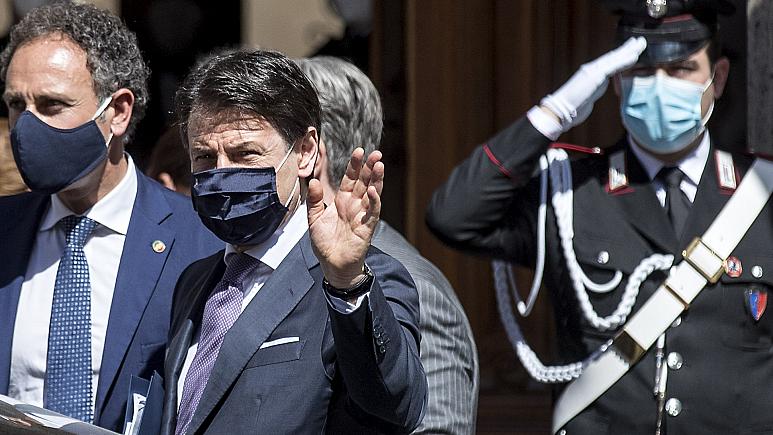Coronavirus: Italy prosecutors question PM Giuseppe Conte over lockdown ‘delay’

Italy’s Prime Minister Giuseppe Conte has been questioned by prosecutors about alleged official negligence in imposing lockdowns in one of the areas worst hit by the coronavirus outbreak.
It’s part of an inquiry following dozens of complaints that two towns in the northern Lombardy region should have been declared “red zones” much earlier after cases of the virus were detected.
[contfnewc]
[contfnewc]
[contfnewc]
Doctors and virologists have said the two-week delay in quarantining Alzano and Nembro helped allow the virus to spread in Bergamo province, which saw a 571% increase in excess deaths in March compared with the average of the previous five years.
Prosecutors from Bergamo travelled to Rome and quizzed the premier for three hours, Conte’s office said, as well as the Italian health and interior ministers. The lead prosecutor, Maria Cristina Rota, stressed that the officials were questioned as witnesses, not suspects.
Several inquiries have been opened following legal complaints from a group representing dozens of relatives of people who died from coronavirus. One factor to be established is whether responsibility for imposing “red zones” to seal off towns lay with the national government, or regional authorities in Lombardy.
After Italy registered its first positive COVID-19 case on February 21 in Lodi, ten towns in the Lombardy province were immediately locked down to try to contain the spread.
[contfnewc]
Alzano and Nembro recorded their first positive cases two days later, on February 23, but it was another fortnight before the two towns were quarantined along with the whole of Lombardy, on March 7.
Italy’s Superior Institute of Health recommended the move on March 3, but a campaign from the country’s leading business lobby argued the outbreak was no worse than elsewhere and that figures were “misleading”.
Bergamo’s Mayor Giorgio Gori initially supported the business campaign but has since said he regrets failing to impose the lockdown earlier. However, he argues that the time lost was not a few days but “two months” — as since January there had been a widespread failure to recognise the seriousness of the outbreak and the scale of contagion.
Stefano Fusco, who helped organise a Facebook group gathering testimony from families, has said the industrial importance of the two towns influenced the decision not to lock down. Lombardy accounts for around a fifth of Italy’s gross domestic product.
Families who lost relatives say their legal action is not aimed at prosecuting individuals, but at revealing where the system might have failed.
Earlier this week Giuseppe Conte said he would divulge all relevant facts to the prosecutor, and that “all inquiries are welcome”.
[contfnewc]
[contfnewc]


